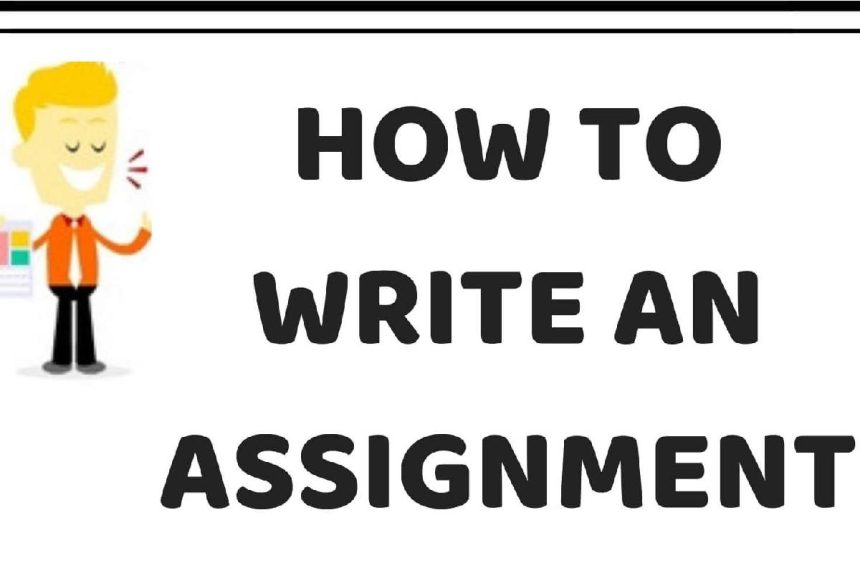How to Write Assignment in UK? – Mastering the art of writing assignments in the UK academic landscape requires a blend of precision, critical thinking, and adherence to specific guidelines. Whether you’re a seasoned student or new to the academic rigour, navigating the intricacies of assignment writing can be a daunting task. Fear not, as this comprehensive guide will equip you with the essential tools and strategies to craft stellar assignments that impress professors and earn top grades. If you ever find yourself overwhelmed and thinking, “Can someone do my assignment?” don’t hesitate to seek assistance from reputable academic support services that can provide guidance and support tailored to your needs.
Understanding the Assignment Brief: The cornerstone of successful assignment writing lies in comprehending the assignment brief thoroughly. Take the time to dissect the instructions, identifying key components such as the topic, word count, formatting requirements, and submission deadline. Highlight any ambiguities or uncertainties and seek clarification from your instructor if needed. By grasping the assignment brief’s nuances, you lay a solid foundation for structuring your work and fulfilling all criteria with precision. Remember, clarity breeds confidence, so don’t hesitate to clarify any doubts before proceeding. Once you have a clear understanding of the task at hand, you’re ready to embark on the writing journey.
Research: The backbone of any well-crafted assignment is diligent research. Dive into reputable sources such as academic journals, books, and scholarly articles related to your topic. Leverage online databases and library resources to gather a diverse range of perspectives and empirical evidence. Keep meticulous notes, citing your sources accurately to avoid plagiarism.
Remember to critically evaluate the credibility and relevance of each source, distinguishing between primary and secondary sources where applicable. As you delve deeper into your research, maintain a coherent narrative thread, synthesizing key findings and arguments to support your own analysis and conclusions. Effective research not only enhances the depth of your assignment but also demonstrates your engagement with the subject matter. When in doubt about where to find the best literature review writing services, consider reputable online platforms that offer expert assistance in navigating the vast landscape of academic literature. These services can help streamline your research process and ensure that you have access to the most relevant and up-to-date sources for your assignment.
Structuring Your Assignment: A well-structured assignment is like a well-built house – it stands strong on a solid foundation. Begin with a clear introduction that provides context and outlines the scope of your work. State your thesis or central argument succinctly, setting the stage for the ensuing discussion. Divide the body of your assignment into logical sections or paragraphs, each addressing a specific aspect or subtopic. Use headings and subheadings to guide the reader through your analysis, enhancing readability and clarity. Ensure a seamless flow between paragraphs, transitioning smoothly from one idea to the next. Support your arguments with evidence, citing relevant sources to bolster your claims. Finally, craft a concise conclusion that summarizes your key findings and reinforces your thesis. Avoid introducing new information in the conclusion; instead, offer reflections or suggestions for further research.
Writing Style and Tone: The tone and style of your writing play a crucial role in engaging your reader and conveying your ideas effectively. Aim for clarity and precision, using formal language appropriate for academic discourse. Avoid colloquialisms, slang, or overly complex vocabulary that may obscure your message. Vary your sentence structure and length to maintain reader interest, alternating between longer, more complex sentences and shorter, punchier ones. Be mindful of your audience and adjust your tone accordingly, striking a balance between professionalism and accessibility. Remember, clarity should always take precedence over complexity. Proofread your work meticulously, checking for grammar, punctuation, and spelling errors. Consider seeking feedback from peers or instructors to refine your writing further.
In conclusion, mastering the art of assignment writing in the UK requires a combination of meticulous planning, thorough research, and effective communication. By understanding the assignment brief, conducting rigorous research, and structuring your work thoughtfully, you can create compelling assignments that showcase your intellect and analytical prowess. Pay attention to your writing style and tone, striving for clarity and precision in your expression. With practice and perseverance, you’ll hone your skills and excel in your academic pursuits. So, embrace the challenge, sharpen your pencils, and let your ideas soar on the page. The journey may be demanding, but the rewards are undoubtedly worth it.
Furthermore, remember that writing assignments is not solely about meeting academic requirements; it’s also an opportunity for personal and intellectual growth. Embrace each assignment as a chance to delve deeper into your chosen field of study, to refine your critical thinking skills, and to articulate your ideas with clarity and conviction. Approach each task with enthusiasm and curiosity, viewing challenges as opportunities for learning and development. As you navigate the complexities of assignment writing, don’t lose sight of the bigger picture – the pursuit of knowledge and the joy of discovery. Ultimately, the skills you cultivate through diligent practice and dedication will serve you well beyond the confines of academia, empowering you to thrive in any endeavour you choose to pursue.


